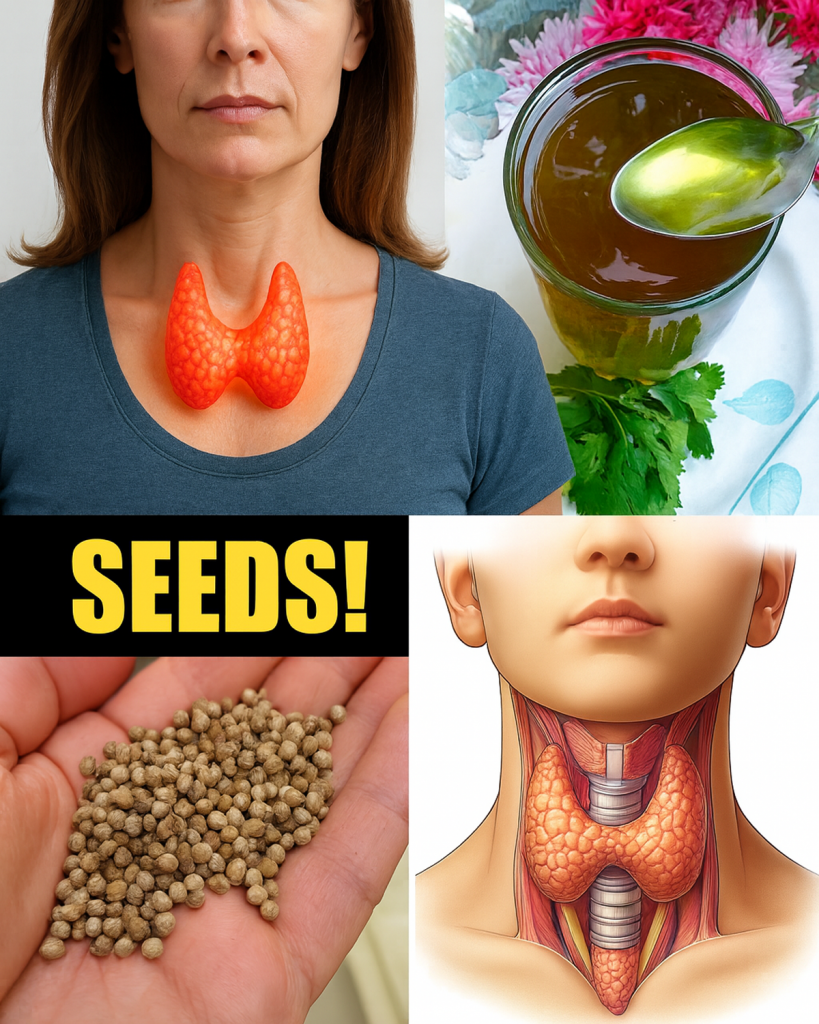Did you know that nearly 20 million Americans are living with some form of thyroid disease, and up to 60% of them may not even know it? The thyroid—a butterfly-shaped gland at the base of your neck—controls metabolism, energy, mood, and even heart function. When it’s out of balance, symptoms can include fatigue, weight changes, brain fog, dry skin, and mood swings. Many people turn to medications for thyroid health, but growing research and clinical experience suggest that diet, lifestyle, and natural practices can play a big role in supporting thyroid function.
What if you could take simple steps every day to help your thyroid heal and regain its balance naturally? While no approach replaces professional medical care, certain food choices, stress-management strategies, and nutrient-rich habits can make a profound difference. In this article, you’ll learn six practical, science-supported steps to support your thyroid naturally, including diet tweaks, stress reduction, and real-life strategies you can start today.

Step 1: Nourish with Thyroid-Supporting Foods
Your thyroid needs specific nutrients to produce hormones effectively. By prioritizing these in your meals, you give your gland the building blocks it requires.
Key nutrients for thyroid health
- Iodine: Essential for thyroid hormone production. Found in seaweed, iodized salt, and seafood.
- Selenium: Helps activate thyroid hormones. Brazil nuts, sunflower seeds, and fish are excellent sources.
- Zinc: Supports hormone synthesis. Found in pumpkin seeds, beans, and lean meats.
- Iron: Low iron can worsen thyroid dysfunction. Include spinach, lentils, and grass-fed beef.
Practical tip: Try a breakfast smoothie with spinach, pumpkin seeds, and a small piece of seaweed for a daily thyroid-friendly nutrient boost.
Step 2: Reduce Inflammation Through Diet
Chronic inflammation is often linked to thyroid disorders like Hashimoto’s and Graves’ disease. The best approach is to follow an anti-inflammatory diet.

Foods to include
- Colorful vegetables (carrots, beets, kale)
- Omega-3 fatty acids (salmon, chia seeds, walnuts)
- Spices with anti-inflammatory properties (turmeric, ginger)
Foods to limit
- Processed sugar and refined carbs
- Fried or fast food
- Excessive gluten for those with sensitivities
Case story: Emma, 42, diagnosed with Hashimoto’s, noticed a significant drop in fatigue after replacing processed snacks with fresh vegetables and omega-3 rich foods.
Step 3: Manage Stress and Support Adrenal Health
Stress hormones like cortisol directly affect thyroid function. Long-term stress can slow down thyroid activity and worsen symptoms.
Effective stress management practices
- Daily deep breathing or meditation (10–15 minutes)
- Gentle exercise like walking or yoga
- Keeping a regular sleep routine (7–9 hours per night)

Example: John, a 50-year-old teacher with hypothyroidism, began practicing guided meditation three times per week. After a few months, his energy levels and concentration improved noticeably.
Step 4: Heal Your Gut for Better Absorption
Your digestive system plays a vital role in absorbing nutrients that fuel thyroid health. Many people with thyroid disorders also struggle with gut issues like bloating, constipation, or leaky gut.
Gut-healing foods and practices
- Probiotic-rich foods: yogurt, kefir, sauerkraut
- Fiber-rich vegetables to support microbiome diversity
- Hydration: drinking enough water for smooth digestion
Practical tip: Add one serving of fermented food daily, such as kimchi or probiotic yogurt, to help improve gut health and support thyroid balance.
Step 5: Avoid Environmental Toxins That Disrupt Hormones
Everyday chemicals known as endocrine disruptors can interfere with thyroid function. These are often found in plastics, pesticides, and even skincare products.
Ways to reduce exposure
- Use glass or stainless steel containers instead of plastic
- Choose organic produce when possible
- Switch to natural personal care products free of parabens and phthalates

Comparison Table: Common Endocrine Disruptors and Safer Alternatives
| Source | Potential Harm | Safer Choice |
|---|---|---|
| Plastic bottles | BPA disrupts hormones | Glass or stainless steel |
| Conventional food | Pesticide residues | Organic or well-washed produce |
| Synthetic skincare | Parabens and phthalates | Natural, organic skincare |
Step 6: Support Thyroid with Gentle Lifestyle Practices
Consistency matters more than perfection when it comes to thyroid healing. Along with diet and stress reduction, lifestyle changes can make a lasting impact.
Practical habits
- Exercise moderately: brisk walking, cycling, or swimming improve circulation and metabolism.
- Spend time outdoors: natural sunlight supports vitamin D production, vital for immunity and thyroid balance.
- Keep a thyroid journal: track symptoms, diet, and sleep patterns to identify triggers and improvements.
Case story: Lisa, 35, started walking outdoors for 30 minutes daily and noticed not only improved mood but also a steady improvement in energy and weight balance.

Bringing It All Together
Healing your thyroid naturally is about supporting your body with the right nutrition, lifestyle, and stress-management tools. These six steps—nutrient-rich foods, anti-inflammatory diet, stress reduction, gut healing, reducing toxins, and lifestyle practices—work together to create an environment where your thyroid can thrive. While medications may still be necessary for some, these approaches provide a holistic foundation for better health.
Conclusion
Your thyroid is small but mighty, influencing nearly every system in your body. Supporting it naturally through nutrient-dense foods, reducing inflammation, managing stress, healing your gut, avoiding toxins, and maintaining healthy daily habits can help restore balance and vitality.
Frequently Asked Questions
Can thyroid problems be healed without medication?
Some people may improve significantly with lifestyle changes, but never stop or adjust medication without consulting your doctor.
What foods are best for thyroid health?
Seaweed, Brazil nuts, pumpkin seeds, and omega-3 rich foods are top choices.
Is exercise safe for thyroid disorders?
Yes, moderate exercise supports circulation and energy, but avoid extreme overtraining.
How long does it take to see improvement?
Changes vary, but many notice better energy, mood, and digestion within a few weeks to months.
This article is for informational purposes only and does not replace professional medical advice.




